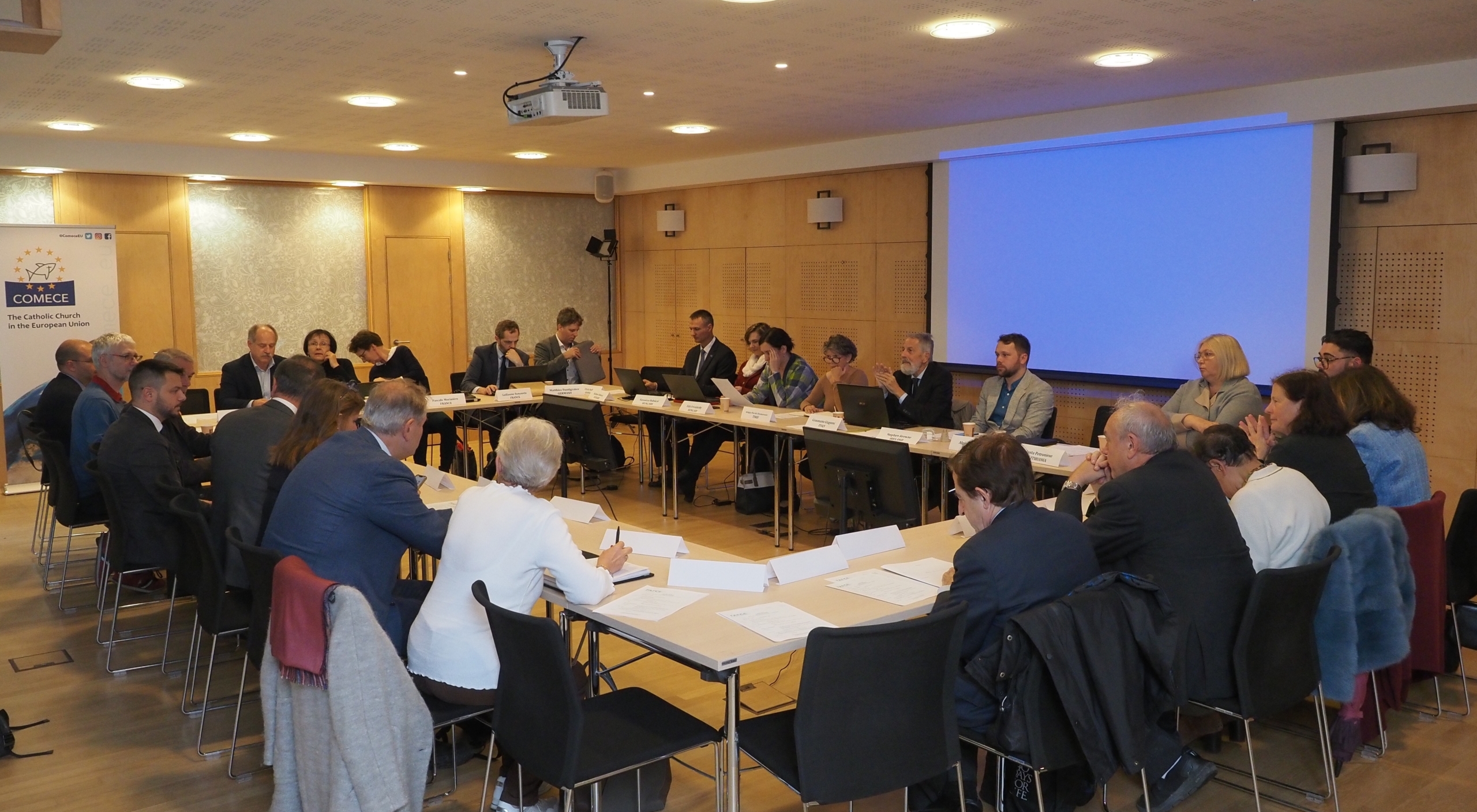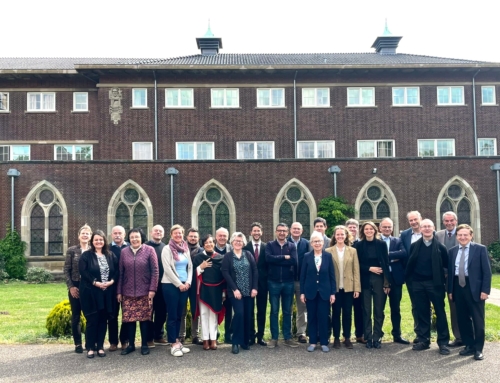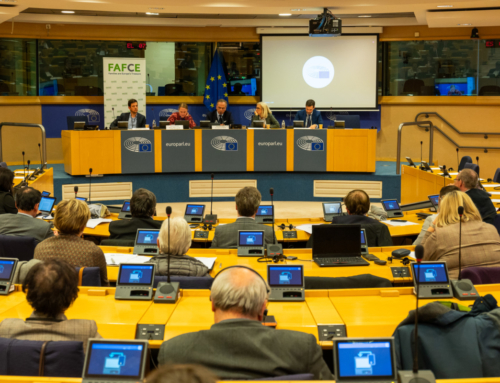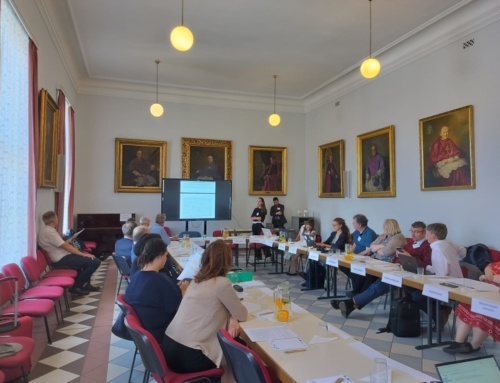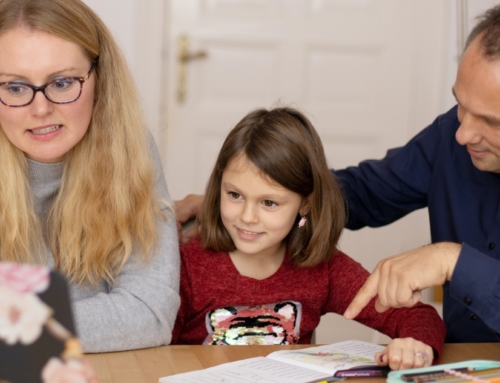Brussels, the 27th of October 2023
On the 7th of June 2023, the European Commission published a communication on a comprehensive approach to mental health. As the Commission highlighted the worrying fact that, “the mental health of our younger generations is getting worse.”
Younger generations cannot be viewed as an isolated group of persons, but rather as part of a wider network of families and communities. Therefore, it is extremely important that the EU raises awareness about the significance of family support in promoting mental health. The EU should encourage Member States to prioritise family-friendly policies that recognise the pivotal role of the family in creating a truly safe and protective space for children and young people.
Our Federation recalls that families are at the forefront of mental health issues. Parents are those mainly responsible for the education and well-being of their children: family thus becomes the foremost societal asset to prevent and heal mental health issues.
Recalling the principles of subsidiarity and proportionality, as enriched in Article 5(3) of the Treaty on European Union (TEU) and Protocol (No 2);
Recalling the European Parliament resolution of 5 July 2022 on mental health in the digital world of work (2021/2098(INI)), which acknowledges that “the combination of teleworking and childcare, especially for children with special needs, could pose a threat to family life and the well-being of both parents and children”;
Recalling the European Parliament resolution of 17 February 2022 on empowering European youth: post-pandemic employment and social recovery, which highlighted that “children growing up with a scarcity of resources and in precarious family situations are more likely to experience poverty and social exclusion, with far-reaching impacts on their development and later adulthood, and lack access to adequate skills and have limited employment options, propagating a vicious circle of inter-generational poverty;”
Recalling the European Parliament resolution of 21 January 2021 with recommendations to the Commission on the right to disconnect (2019/2181(INL)), which highlights benefits of teleworking to facilitate the management of personal and family obligations, thus creating a better work-life balance, as well as the risks and the necessity to an effective right to disconnect;
Recalling the Council conclusions on mental health and precarious work approved the 9 October 2023, which invites all Member States to respect work-life balance and “encourage policies to reconcile professional, personal and family life, in order to foster better protection of mental health”;
Recalling the Council recommendation establishing a European Child Guarantee, that highlights that “income poverty and other social determinants significantly affect the overall development and health, including mental health, of children and increase the risk of ill-health in later years”
Recalling the European Commission strategy “A Digital Decade for children and youth: the new European strategy for a better internet for kids (BIK+) COM/2022/212 final”, which recalls the obligations under the revised Audiovisual Media Services Directive (AVMSD) to protect minors from harmful content that may impair their physical, mental and moral development and illegal content now extend to video-sharing platforms, as well as the Digital Services Act obliging very large online platforms to consider how children can be exposed to content that may impair their physical and mental health, and moral development;
Recalling the EU Care Strategy, which highlights the structural weaknesses of mental health care in the aftermath of the pandemic, and the need for full paid family leave and flexible working time arrangements, particularly of informal carers, in light of the Conference on the Future of Europe proposal on the demographic transition that calls for quality affordable and accessible long-term care. This will contribute in meeting the needs of both care receivers and caregivers, so that mothers and fathers can confidently reconcile their work and family life;
Recalling the FAFCE Spring 2023 Board Resolution on “the crisis of loneliness in times of digital transition: family networks as agents of change”, which called to “recognise the role of family networks and associations as partners, together with the protagonists of informal care and schools, in building a European mental health strategy.”
Welcoming the focus provided by the European Commission when it comes to mental health in the European Union; calling for more attention to be given to support of the family and family associations in promoting mental health; and encouraging Member States to prioritise family-friendly policies that recognise that families provide individuals with a sense of security, love and belonging, essential for a good mental health;
Considering that children and youth who live in a protective family environment are more likely to maintain a good mental health, as families’ parents’ mental health commonly impacts their children’s mental health;
Our Federation strongly invites EU institutions and all EU Member-States for concrete family-policy actions to:
- Develop a human-centred approach to mental health, focusing on the human dignity of each child, youth and their families, recognising the role of families and informal care, including in access to adequate and effective prevention for children and youth to mental health issues; highlight the primary role and responsibility of parents in the education of their children, and in the prevention, early warning of mental health problems and caring of children with mental health;
- Promote a culture of life, solidarity and community, that can help the youth in fostering trust in the future, while coping with economic, social and cultural obstacles; also recognise the role of civil society, particularly families and family networks and associations, both financially and with the necessary means to prevent and heal mental health issues; emphasize primary prevention and the nurture of relationships, building family communication competences, and capacity-building of empathy and intergenerational coexistence, particularly through education and training by family centres, as demonstrated through wide research that this practice decreases divorce rate, which has shown it has a positive impact on children’s psychological well-being;
- Recognise the valuable work and support of grandparents in the everyday well-being of children and youth, taking care responsibilities, and transmitting hope and experience of life to the younger generations; therefore, promote a culture of intergenerational solidarity and protection of our elderly as key assets in the struggle for mental health of children;
- Undergo an in-depth analysis on the roots of mental health distress on young generations, taking into consideration the impact of digitalisation and demographic change, digital addictive behaviour, cyber violence, sexual abuse, promotion of unclear concepts regarding the so-called “gender self-determination”, no work-family balance, youth unemployment, instability of family relationships and the lack of family members commitment;
- Promote the development of National Action Plans (NAPs) to support families, family networks and associations and schools at the forefront of depression and suicide prevention initiatives, with training on detection and prevention as well as support for those who have lost someone through suicide; include parent and family associations in the development of these policies;
- Recognise digital addictions as a potential source of mental health disorders in children and youth; establish and implement targeted policies to combat the specific impact of digital addictions, drug abuse and addiction;
- Take legislative action against oversexualization of content online and in advertisement, particularly depicting children; coordinate EU Member States to collect all data regarding pornography production and consumption trends by both minors and adults, and launch an impact assessment on the contribution of online pornography to the creation of harmful stereotypes, criminal behaviour and mental health disorders; initiate discussions on the implementation of an EU-wide ban on the access of children to online pornography;
- Take into consideration the impact of the well-being of mothers and pregnant women on the mental health of their children, also before birth, and draw attention to particular support in actions taken;
- Consider the role of sports and music activities, especially collective, and children participation as a preventive measure, and support families with difficulties to involve children through school, community or family associations programmes;
- Establish the Sunday as a weekly day of common rest, thus favouring family and social cohesion.

